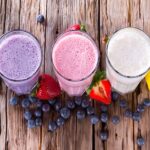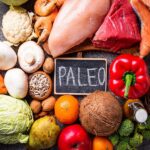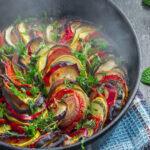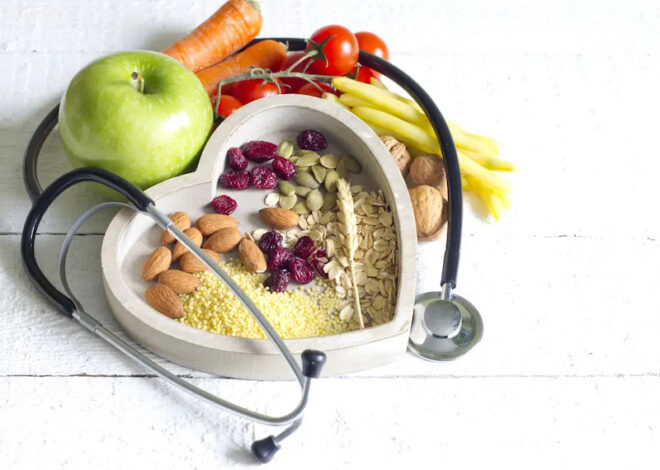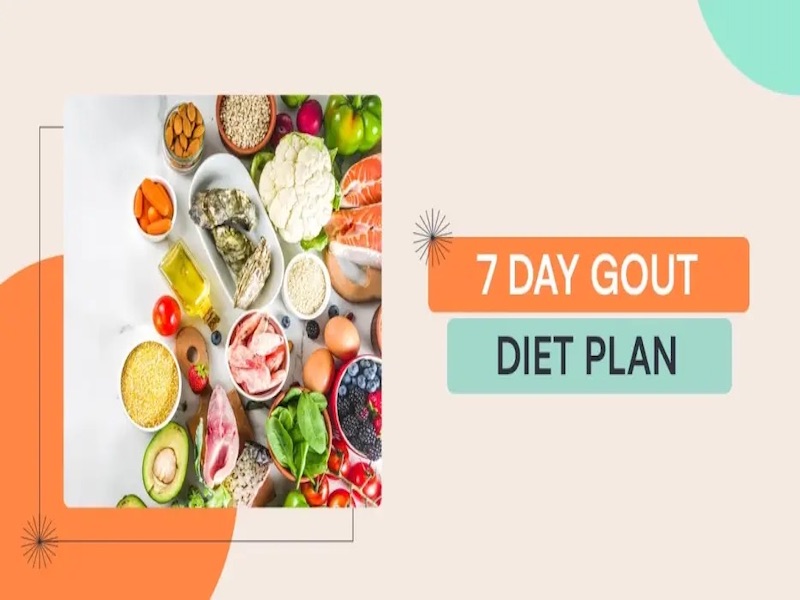
Gout diet: Menu suggestions for a nutritious week
Why is diet so important for people with gout? In modern life, where processed foods and purine-rich foods are an indispensable part of life, understanding and applying a suitable diet is the key to controlling gout. In this article, we will explore the basic principles and foods to eat and avoid to build an effective gout diet.
About gout
Gout is arthritis caused by the buildup of uric acid crystals in the joints. It causes severe pain, swelling, and redness in the joints. The main cause of gout is the body producing too much uric acid or not removing enough uric acid through the urine.
The importance of diet for gout
Diet plays a vital role in controlling and improving gout. A gout is a form of arthritis caused by the deposition of urate crystals in the joints, mainly the big toe joint. Adjusting your diet properly can help reduce uric acid levels in the blood, prevent acute gout attacks, and slow the progression of joint destruction.
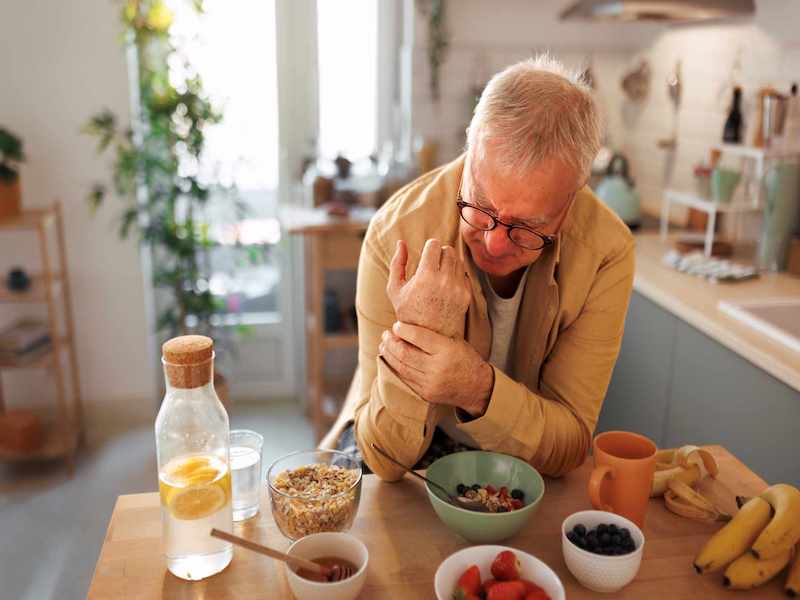
- Reduce purine intake: Purine is a substance found in many foods, when entering the body it will be converted into uric acid. Limiting foods rich in purines helps reduce the amount of uric acid in the blood, thereby reducing the risk of urate crystal formation.
- Increase uric acid excretion: Some foods can help increase the ability to excrete uric acid through the kidneys, such as citrus fruits and cherries.
- Weight control: Obesity is an important risk factor for gout. Losing weight through a proper diet helps reduce the burden on joints and effectively supports gout treatment.
- Providing essential nutrients: A balanced diet providing enough vitamins and minerals helps strengthen the immune system, support joint recovery, and improve overall health.
Nutritional principles in Gout treatment
Diet plays an important role in treating gout and preventing flare-ups. Many people with gout are concerned that most common foods are high in purines or fructose. However, some foods are low in these substances and can be safely consumed. Here are some dietary guidelines to keep in mind:
Foods low in purines
- Fish and white meat: River fish (such as carp, and tilapia), freshwater fish (such as perch), and white meat (such as chicken breast) contain low purine content, which can provide the body with necessary protein. The recommended intake is 50-100g of protein/day.
- Starch: Starches such as rice, noodles, vermicelli, potatoes, bread and cereals are essential foods. Starch contains a safe amount of purine and helps dissolve uric acid in the urine.
Add green vegetables and fruits
Vegetables and fruits: Green vegetables and fruits such as cherries, kale, and cauliflower help remove uric acid from the blood.
Use vegetable oil
Vegetable Oils: Use vegetable oils like olive oil, peanut oil, and sesame oil to reduce fat intake.
Food processing methods
Food processing: Food should be processed by steaming, boiling and minimizing fried and stir-fried dishes with lots of oil.
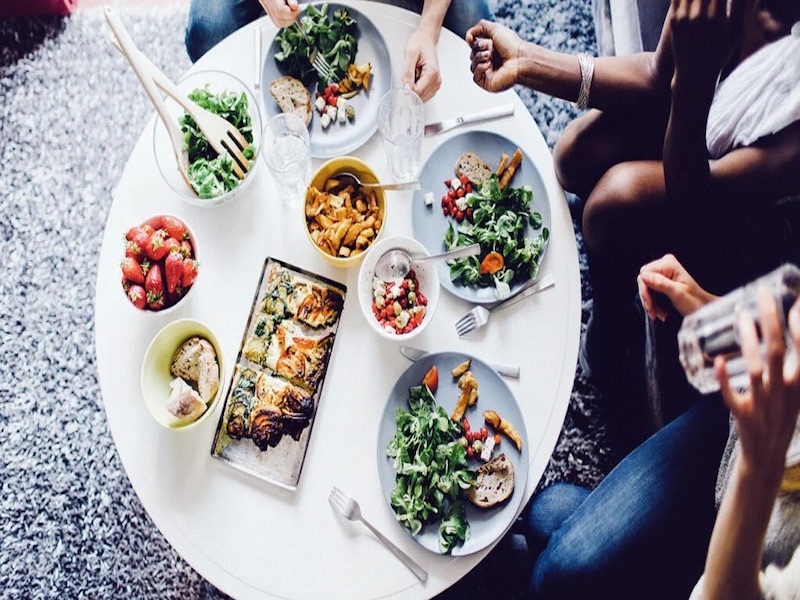
Daily nutrition control
- Energy: 30 – 35 kcal/kg body weight/day
- Protein: 0.8g/kg body weight/day
- Fat: 18-25% of energy needs
- Salt intake: No more than 5g/day
- Water intake: 40ml/kg body weight/day
Gout patients need to follow these nutritional principles to effectively control the disease and maintain overall health.
Diet for gout patients in 1 week
Below is a suggested menu for people with gout, providing about 1600 kcal/day, designed by Dr. Nghiem Nguyet Thu – National Institute of Nutrition. This diet helps control the amount of purine and fructose while ensuring adequate nutrition for the body.
Monday/Wednesday/Friday (Note: Salt intake ≤ 4g/day)
Breakfast:
Beef noodle soup: 150g rice noodles, 35g beef, 10g green onions, broth (salt 1g/100ml)
Lunch:
- Rice: 200g (rice 100g), equivalent to two bowls of rice
- Braised pork ribs: Pork ribs (boneless) 50g
- Fried tofu: 20g tofu, 3ml cooking oil
- Stir-fried chayote: 200g chayote, 7ml cooking oil
- Green cabbage soup: 50g green cabbage
- Lychee: 150g
Dinner:
Nutritional value:
- Protein: 59.5g
- Glucid: 245.3g
- Calcium: 387mg
- Iron: 13mg
- Zinc: 8.6mg
- Fiber: 10.9g
- Sodium: 2g
- Potassium: 3 g
- Cholesterol: 0.14 g
Total energy: 1605 Kcal
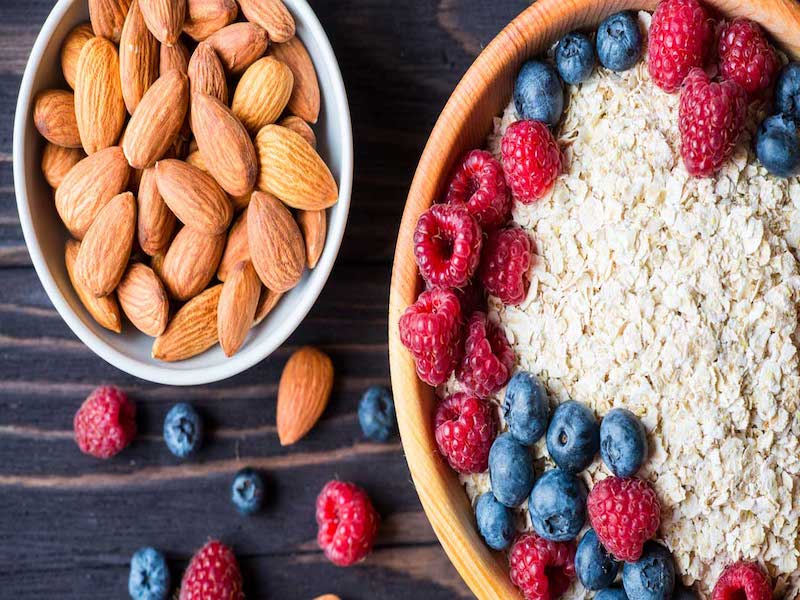
Tuesday/Thursday/Saturday (Note: Salt intake ≤ 4g/day)
Breakfast:
Crab vermicelli soup: 180g vermicelli, 100g tofu, 30g crab meat, 5g green onion, 30g tomato, broth (salt 1g/100ml)
Lunch:
- Rice: 200g (rice 100g), equivalent to two bowls of rice
- Fried carp with tomato sauce: 70g carp, 25g tomato, 7ml cooking oil
- Minced meat: 20g lean shoulder meat
- Boiled cabbage: 200g cabbage
- Zuppies soup: 50g zucchini
- Orange: 150g (half a fruit)
Dinner:
- Protein: 60.3 g
- Glucid: 252.5 g
- Lipid: 43.1 g
- Calcium: 522 mg
- Iron: 10.5 mg
- Zinc: 10.8 mg
- Fiber: 14.2 g
- Sodium: 1.9 g
- Potassium: 2.6 g
- Cholesterol: 0.06 g
Total energy: 1639 Kcal
Sunday (Note: Salt intake ≤ 4g/day)
Breakfast:
Peanut sticky rice: 50g glutinous rice, 10g peanuts, 3g sesame
Lunch:
Rice: 200g (100g rice), equivalent to 2 small bowls
Stir-fried beef with onions: 50g beef, 50g onion, 20g tomato, 7ml cooking oil
- Braised goby fish: Fish 20g of gourd
- Boiled radish: 200g of radish
- Green pumpkin soup: 50g of pumpkin
- Ripe mango: 100g
Dinner:
- Rice: 150g (rice 75g), equivalent to a small bowl of rice
- Steamed sea shrimp with lemongrass: 50g of sea shrimp, 1 clove of lemongrass
- Meat-fried egg: Half a chicken egg, 10g of lean pork shoulder, 3ml of cooking oil
- Stir-fried cabbage: 200g of watercress, 7ml of cooking oil
- Vegetable soup: Green cabbage 50g
- Pomegranate: 100g
Nutritional value:
- Protein: 60.0 g
- Glucid: 254.1 g
- Lipid: 35.2 g
- Calcium: 571 mg
- Iron: 19.4 mg
- Zinc: 10.6 mg
- Fiber: 19.5 g
- Sodium: 1.9 g
- Potassium: 3.06 g
- Cholesterol: 0.17 g
Total Energy: 1573 Kcal



